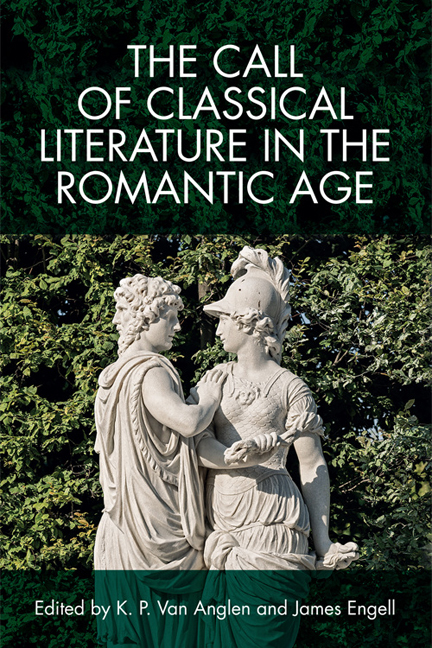3 - “Past ruin’d Ilion”: The Classical Ideal and the Romantic Voice in Landor’s Poetry
Published online by Cambridge University Press: 06 May 2021
Summary
Over the course of a literary career that spanned eight decades between the appearance of his first volume in 1795 and his death in 1864, Walter Savage Landor repeatedly emphasized his isolation within his own age, declaring that “I claim no place in the world of letters; I am alone; and will be alone, as long as I live, and after.” In the epigrammatic poem “With An Album,” published in 1846, he echoed and extended the opening line of Horace's Ode III.1 (“Odi profanum vulgus et arceo”) in order to define his own poetry against the qualities of more widely read contemporary verse: “I know not whether I am proud, / But this I know, I hate the crowd: / Therefore pray let me disengage / My verses from the motley page, / Where others far more sure to please / Pour out their choral song with ease. / And yet perhaps, if some should tire / With too much froth or too much fire, / There is an ear that may incline / Even to words so dull as mine” (15:224; ll. 1–10). By his own account, Landor's work is neither facile nor readily pleasing. Instead it achieves its effects— not on “the crowd” but on a single worthy listener (“an ear that may incline”)—through the restraint, control, and verbal difficulty which are implicitly opposed to the excesses of insubstantial “froth” and passionate “fire” among his contemporaries. Landor eschews their “choral song” for the individuality of his own voice, and the pride which he takes in his position apart from “the crowd” is not obscured by the self-conscious modesty of the final line.
But as much as Landor insisted on his separation from the readers and writers of his own time, he was equally adamant about those with whom he did claim a place, and by whose standards he measured his own achievement: the poets of ancient Greece and Rome. Landor often connected the two points, linking his lack of popularity with his dedication to the art and ideals of classical antiquity.
- Type
- Chapter
- Information
- The Call of Classical Literature in the Romantic Age , pp. 80 - 102Publisher: Edinburgh University PressPrint publication year: 2017



